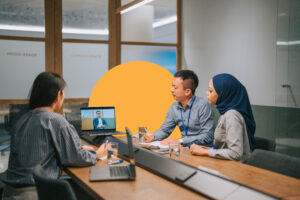
Event Description
In this interactive two-hour workshop, participants will be guided through the power and practice of reflection in action; a critical tool for deep learning, self-awareness, and both personal and professional growth.
Participants will explore:
- Why reflection matters: Understanding its role in learning, decision-making, and personal development.
- Effective prompts: How to craft and use reflective prompts to foster deeper insights.
- Ways to engage: How participants can respond to reflection prompts in different formats.
- Creative reflection activities: Engaging, hands-on exercises designed to bring reflection to life.
Through experiential learning, attendees will participate in various reflective exercises, gaining practical tools and strategies to integrate into their teaching, learning, and daily practices.
Register Now!
This session will not be recorded.
About the Facilitator
Your FLO Facilitators for this workshop will be Leva Lee and Helena Prins.
Leva Lee (she/her) is a Learning + Teaching Advisor at BCcampus. With a background in open learning, learning design, and educational technology, she has many years of experience designing online courses, resources, and offerings for the B.C. secondary and post-secondary educator communities.
Helena Prins (she/her) is a Learning + Teaching Advisor at BCcampus, where she coordinates the Facilitating Learning Online (FLO) portfolio. She began her career as a high school teacher in South Africa. Over the past 20 years, she has taught students of all ages and stages on four continents. A golden thread throughout her career has been breaking down barriers to learning.
